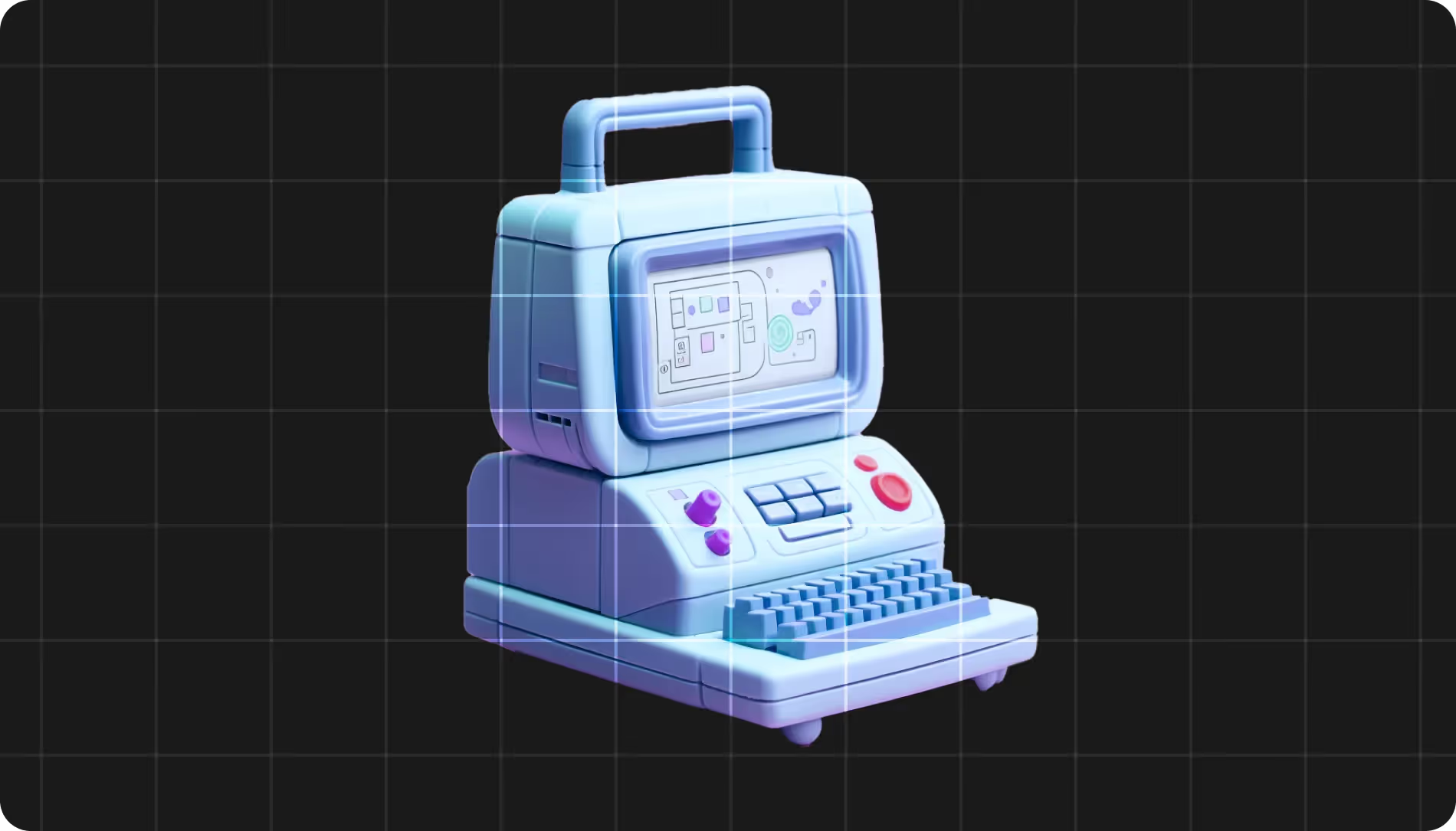
With hundreds of programming languages in use today, it can be daunting choosing which ones to learn when you’re new to tech.
The good news is programming languages aren’t like Pokemon — you don’t have to catch them all. You just need to know which ones are the most relevant to your field, are desirable among employers, and have median salaries that align with your personal career goals.
To help, we’ve rounded up the top nine programming languages to learn in 2026 based on our Employer Survey, Outcomes Report, and the Stack Overflow 2025 Developer Survey as well as mentions across vacancies. Let’s dive in.
What is a programming language?
A programming language is a set of instructions that lets humans communicate with computers and tell them to execute tasks. Like the natural languages that we speak or sign, programming languages have their own unique grammar, syntax, and structure.
Unlike natural languages, though, mistakes and typos render programming languages unintelligible. Computers are consistent in reading and performing tasks, so even a single mistake (such as a missing closed parenthesis) can prevent code from executing.
The two categories of programming languages
A note about compilers: Languages like C++ use a compiler to convert sentences coders write into the binary form machines understand. Others like JavaScript have a built-in interpreter that allows programmers to translate commands and structures on the fly; these are simpler to use.
The 9 best programming languages to learn by job demand
Looking strictly at mentions in vacancies, SQL dominates with ~266,000. However, that comes with a proviso: for most coders, it’s a required secondary skill. Python (~64,000), Java (~43,000), and C# (~36,000) are the true career foundation languages for many developers. Similarly, JavaScript (~30,000) and TypeScript (~14,000) run the web, so they also serve as base languages. Then you've got the specialists serving niche but lucrative markets with expertise in C++ (~16,000), Go (~5,000–10,000), and Swift (~3,000).
1. Python

Python is a well-known programming language used for a variety of tasks, including writing scripts, optimizing tasks, powering machine learning, engaging in web design, and more. It was created under an OSI-approved open source license, allowing it to be widely shared for commercial purposes.
And in 2026, Python isn't just riding the AI wave, it basically is the wave. The language has become essential infrastructure for anyone working with generative AI or data science. PyTorch, TensorFlow, and OpenAI's APIs all run on Python. Universities teach it as a first language because the syntax reads almost like English, which means there's a massive, constantly growing pool of Python developers.
Reasons to learn Python:
- It has a syntax close to natural language, so it’s one of the easiest to start programming in.
- It was designed to make it easier to work with databases and different kinds of machine-based test automation.
- It’s good for writing real-time code.
- You don't have to know much about coding, since it's written in simple syntax.
- It offers support for testing and integration with popular third-party libraries, such as pip and conda.
- Many different types of roles use Python, and these skills are in demand across industries.
Job titles that use Python:
- Data analyst
- Data scientist
- AI/machine learning engineer
- DevOps engineer
- Web scraping specialist
Salary estimate with Python skills:
Python developers earn a median total pay of $128,000 per year in the US according to Glassdoor.
Popularity: Right now there are about 64,000+ open Python positions monthly across the US. It consistently tops the charts for most-posted language in job listings.
Difficulty: Low
2. SQL
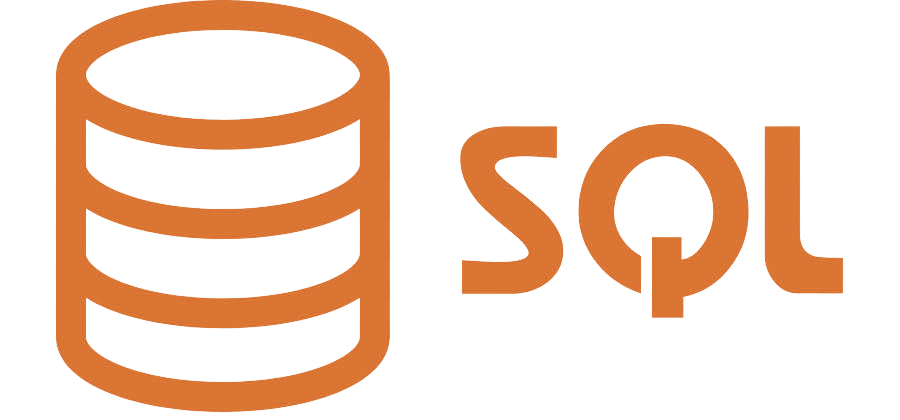
SQL (Structured Query Language) is a database language that’s used to manage data stored in relational databases. It’s a powerful tool that can be used to perform a variety of tasks, such as querying, updating, and deleting data, and it’s a valuable skill for anyone working with data.
You'll rarely see a job titled "SQL developer," but the skill shows up in roughly 266,000+ job listings. That's because every company collecting data needs people who can actually access and query it. The syntax hasn't changed much in decades, so what you learn now will still work in twenty years.
Reasons to learn SQL:
- It’s a powerful tool that allows you to draw data from several connected databases.
- It’s in-demand, since more and more businesses are using data to make decisions.
- It’s a relatively easy language to learn because it has a simple syntax and a small number of commands.
- It has different versions tailored for different needs, such as security (example SQL dialects include MySQL or PostgreSQL).
- It can help with tracking trends, since it allows you to use linear progression.
- It helps companies assess their performance by retrieving metrics stored in databases and calculating KPIs.
Job titles that use SQL:
- Data scientist
- Data analyst
- Business intelligence analyst
- Quality assurance engineer
- Database administrator
- Back-end engineer
Salary estimate with SQL skills:
Even though it’s a rarer title, SQL developers earn a median total pay of $130,00 per year in the US according to Glassdoor.
Popularity: SQL appears in more job descriptions than any other technical term because it is a required secondary skill for Python, Java, and C# developers (and more).
Difficulty: Low
3. Java
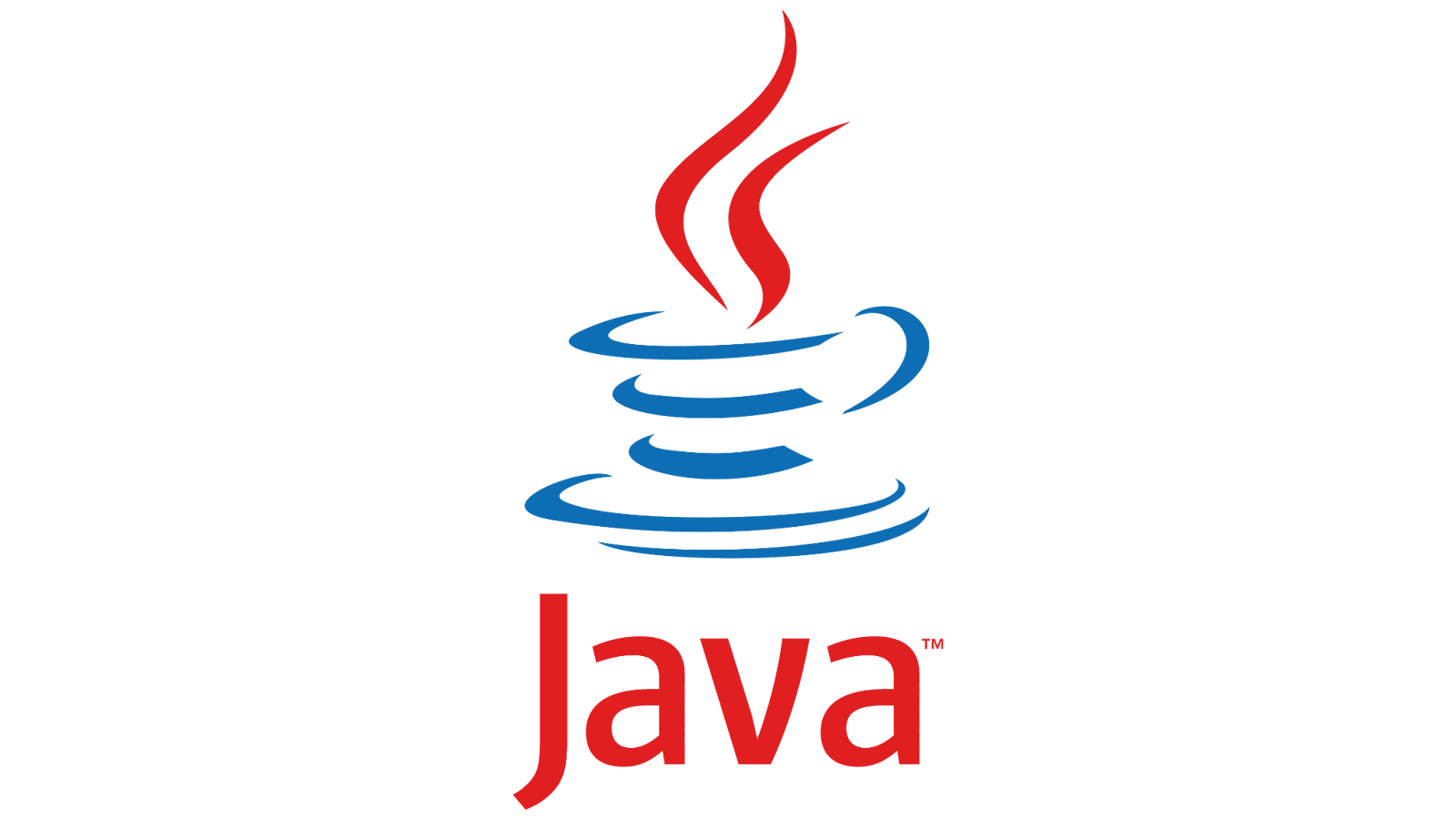
Java is a universal programming language that’s used to develop many well-known applications, programs, websites, and most operating systems for modern smartphones. It’s also one of the best-known and most popular languages, with 29.4% of Stack Overflow’s respondents reporting usage.
Most Fortune 500 companies built their core systems in Java years back, and those systems aren't going anywhere. Banks, insurance companies, and retailers are all maintaining massive Java platforms that can't afford downtime. It's verbose and not trendy, but it's rock-solid for high-stakes environments.
Reasons to learn Java:
- There are many different areas of development in which it operates, and it continues to evolve.
- It’s an object-oriented programming language, which views a program as a set of interacting objects, each with its own properties and behavior.
- It’s a common language, and almost any problem you might encounter using Java has already been figured out by someone else.
- It has mature and useful libraries and frameworks.
- It can be used to develop a program of any complexity — from an online store builder to banking applications.
- It’s used in a wide variety of fields, including e-commerce, gaming, desktop software, finance, and more.
Job titles that use Java:
- Java developer
- Enterprise software engineer
- Back-end engineer
- Android developer
Salary estimate with Java skills:
Java developers earn a median total pay of $117,000 per year in the US according to Glassdoor.
Popularity: About 43,000 monthly openings, concentrated more in traditional business hubs like NYC or Chicago than in Silicon Valley.
Difficulty: High
4. JavaScript
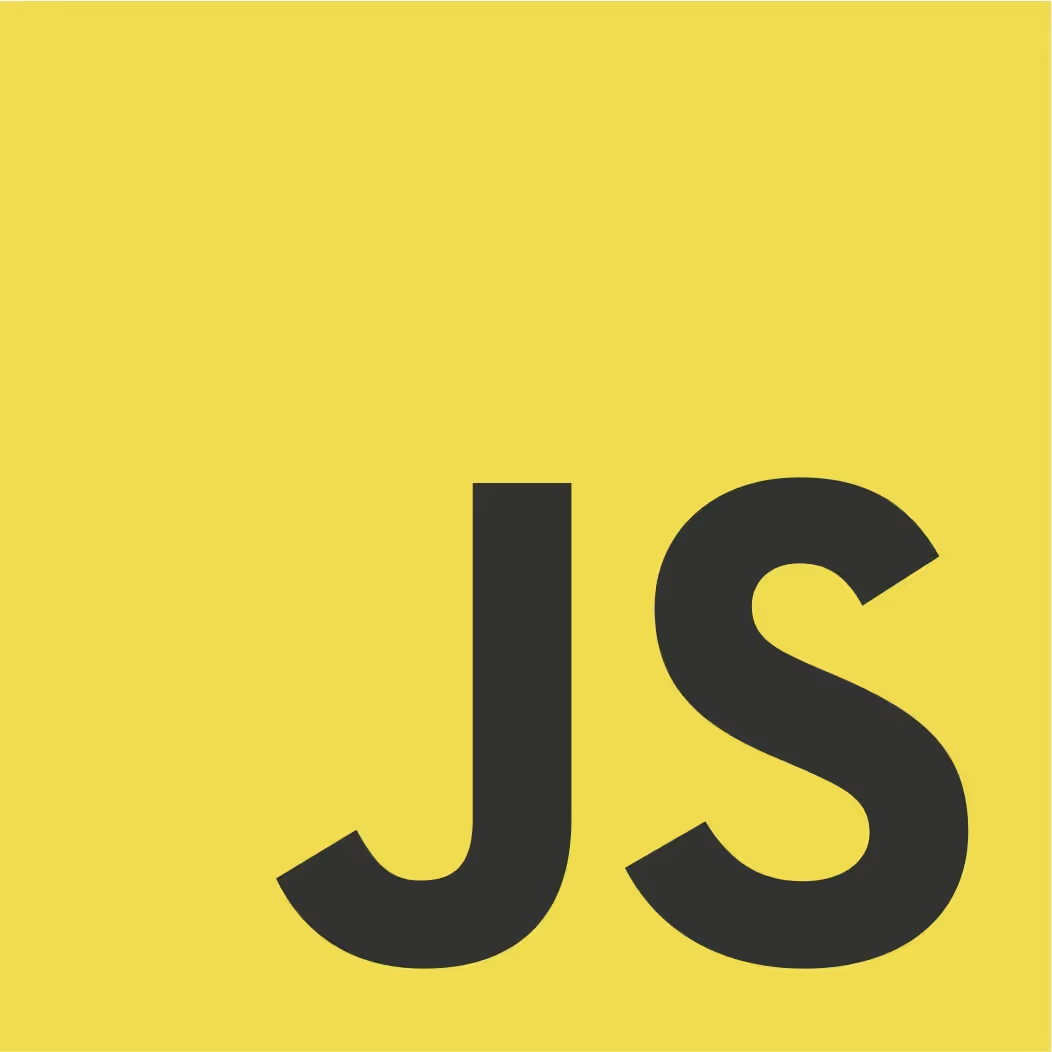
JavaScript is a scripting language that primarily enables browsers to read and execute its code. Over 98% of sites across the web use JavaScript to run their client-side experiences. The language is also at the core of many top-demanded frameworks, like React.js and Vue.js.
Reasons to learn JavaScript:
- It’s the most popular programming language for yet another year in a row.
- It’s used to add interactivity and dynamic features to static web pages.
- It’s a language that doesn’t need a separate compilation step.
- It’s platform-agnostic — it just needs a browser to run.
- Developers have spent years creating massive coding libraries that can extend the capabilities of JavaScript outside its usual web browser box.
Job titles that use JavaScript:
- Web app developer
- Full-stack developer
- Front-end developer
Salary estimate with JavaScript skills:
JavaScript developers earn a median total pay of $119,000 per year in the US according to Glassdoor.
Popularity: Around 30,000 dedicated JavaScript positions monthly, though that's misleading. Millions of jobs require it, but are listed as "React developer" or "Front-end engineer" instead.
Difficulty: Low
5. C#
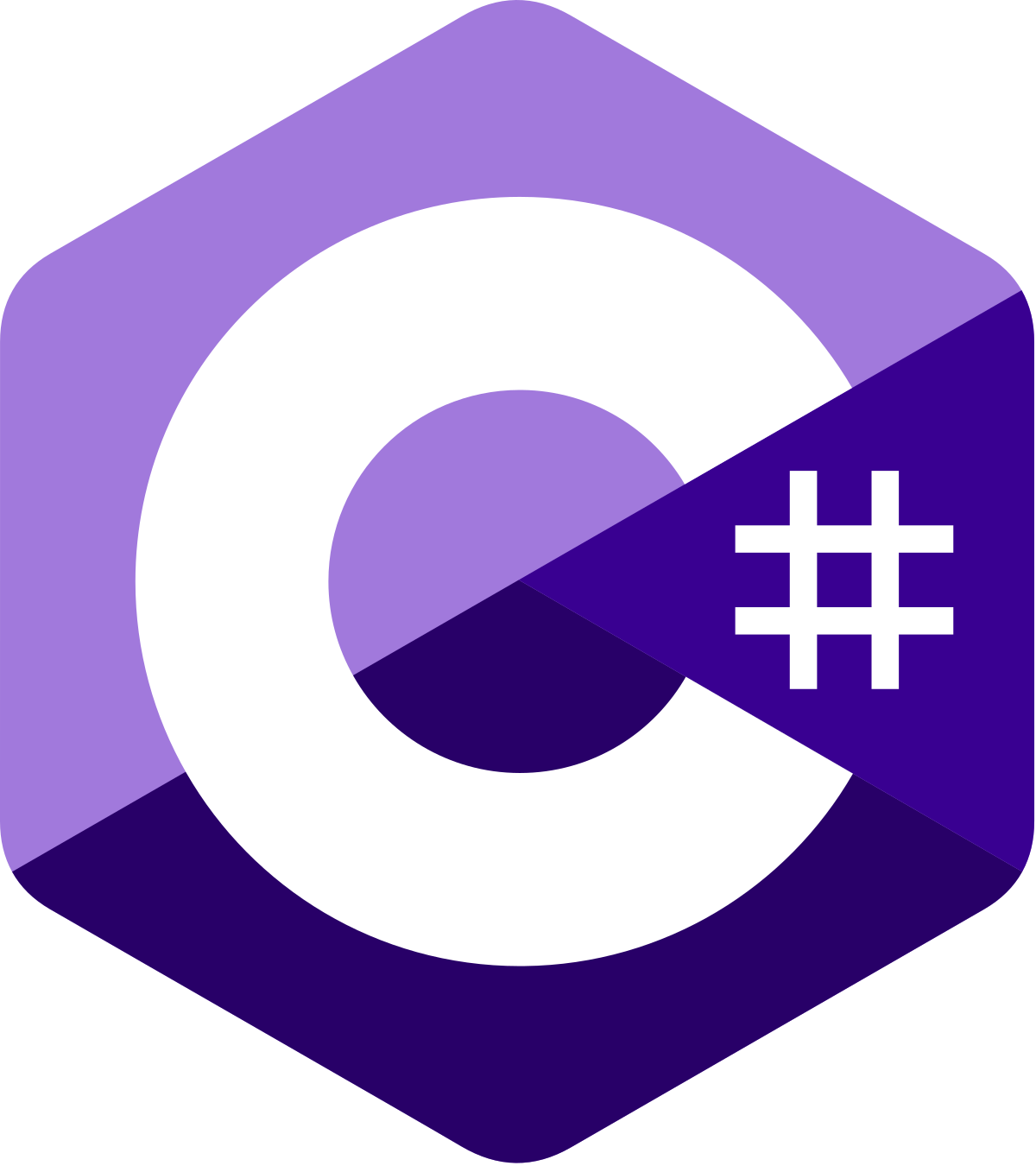
C# (read like C-Sharp) is a programming language developed by Microsoft in 1998-2001 exclusively for their .NET framework. C# hits a sweet spot between power and usability. It's also the backbone of Unity, the most popular game engine out there. With AR/VR tech growing, C# remains crucial for interactive 3D work.
Reasons to learn C#:
- It uses a human-like syntax, making it popular and suitable for many purposes, from software engineering to web development.
- If you plan to work for a company that uses Microsoft-based infrastructure (the Windows operating system, Azure Cloud services, etc.), consider learning C# and .NET.
- It’s an object-oriented language, which helps you write, read, and test code hassle-free. Beginners can control the structure of data and avoid repeating code and errors.
- It’s easier to master C, C++, or Java if you are familiar with C#. As a result, these skills let you easily switch between C-related languages.
- A rich functional library provides convenient compatibility with the Microsoft ecosystem and the opportunity to develop apps faster without writing custom code.
- It provides automatic memory management, which saves time and prevents software crashes.
Job titles that use C#:
- Back-end developer
- VR/AR developer
- Game developer (Unity)
- .NET developer
Salary estimate with C# skills:
C# developers earn a median total pay of $132,000 per year in the US, according to Glassdoor.
Popularity: Roughly 36,000 monthly openings, with particularly strong job security in the Midwest and non-tech sectors like healthcare and manufacturing that lean heavily on Microsoft infrastructure.
Difficulty: High
6. TypeScript
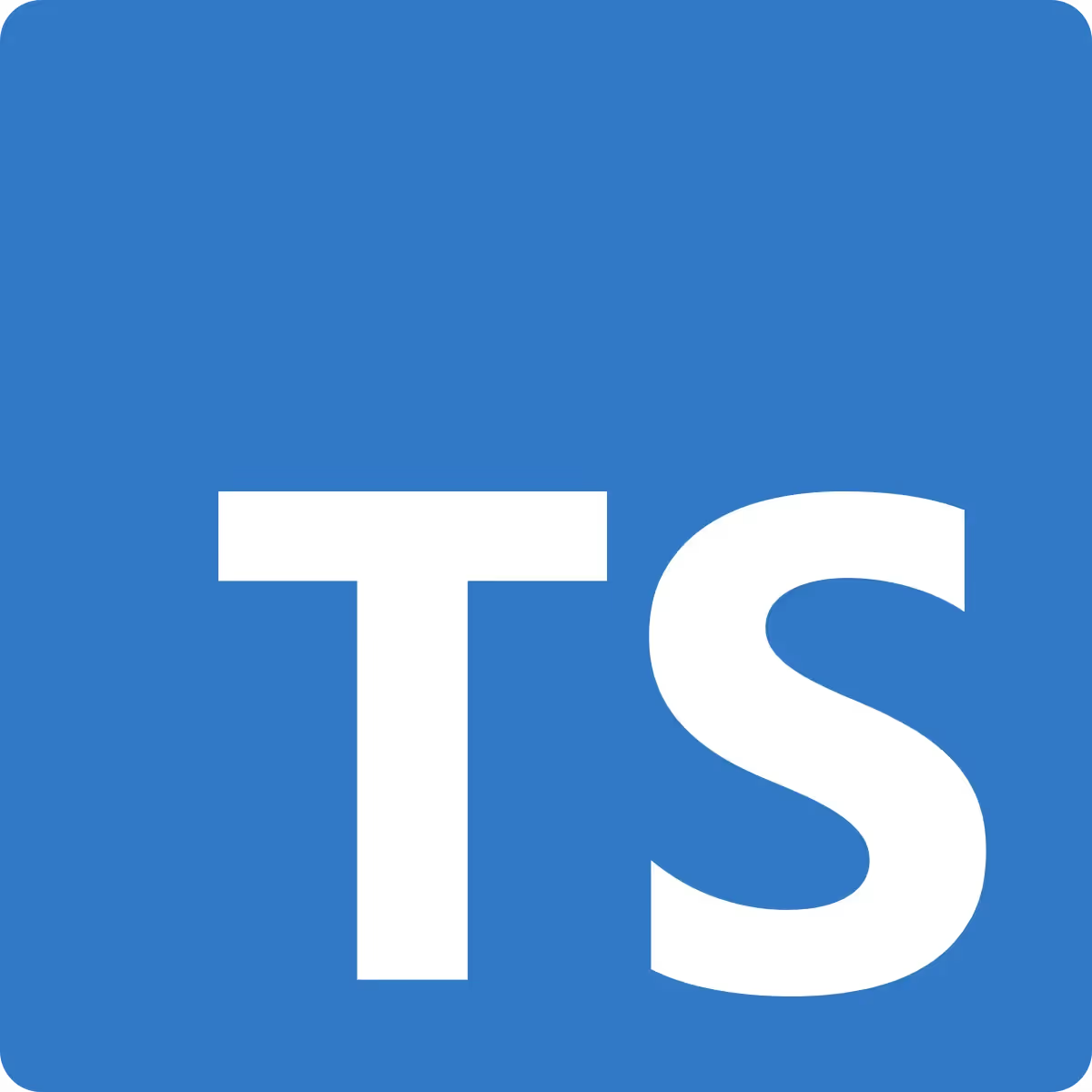
Think of TypeScript as JavaScript with guardrails. It adds structure through static typing, which prevents the kinds of crashes that plague large JavaScript applications. By 2026, it's basically become standard for serious web development. If you already know JavaScript basics, TypeScript is the logical next step. Like SQL, it's becoming a crucial additional language to know.
Reasons to learn TypeScript:
- In addition to JavaScript, many companies are looking for experts who are fluent in TypeScript as well.
- You can catch bugs before running the code thanks to type checking, saving time.
- TypeScript has powerful autocomplete and tooling, meaning you can code faster without sacrificing on quality.
- JavaScript can struggle with scaling, something TypeScript solves, making it an attractive skill to have if you’re targeting work at rapidly growing startups.
- TypeScript makes it easier for coding teams to collaborate, so knowing it will allow you to join a team more seamlessly.
Job titles that use TypeScript:
- Front-end engineer
- Full-stack engineer
- React developer
- Platform engineer
Salary estimate with TypeScript skills:
It’s difficult to pin down TypeScript roles, since this is often among a suite of know-how, but using front-end developers as a proxy, knowing TypeScript will earn you a median total pay of $101,000 per year in the US, according to Glassdoor.
Popularity: About 14,000 current openings, and that number's climbing fast. Many jobs listed as "JavaScript" actually want you writing TypeScript.
Difficulty: Medium
7. C++
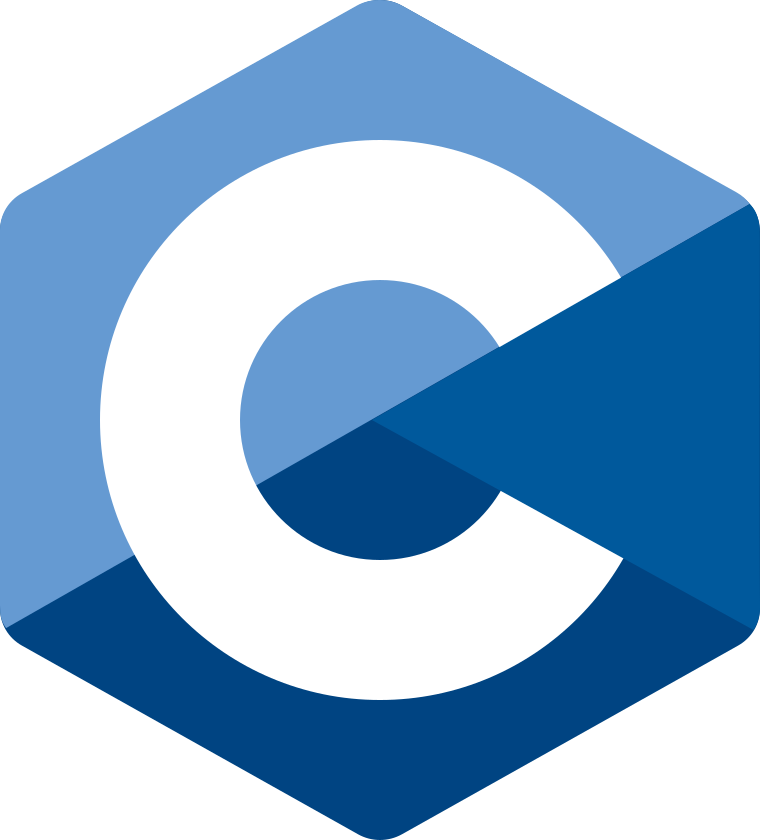
C++ is a more advanced version of C. C++ is all about speed. It lets you manage computer memory directly, which makes it significantly faster than Python or Java. In 2026, it's critical for high-frequency trading, autonomous vehicles, and AAA game engines like Unreal. It's tough to learn, but if you need performance, there's no substitute.
Reasons to learn C and C++:
- Today, a program written in C++ can run on any physical machine or operating system, be it Ubuntu, Windows, Android, iOS, and so on.
- C++ is a programming language used in creating fast, efficient, and scalable applications for a wide range of industries.
- With its ability to offer high performance, C++ remains a popular choice for developing game engines, operating systems, and other performance-critical software.
- After mastering C++, you’ll be able to pick up basically any other coding language.
Job titles that use C and C++:
- Embedded systems engineer
- Game engine developer (Unreal)
- Quantitative developer
- Back-end developer
Salary estimate with C and C++ skills:
C++ developers earn a median total pay of $116,000 per year in the US, according to Glassdoor.
Popularity: Around 16,000 monthly jobs; fewer openings but significantly higher job security because of the specialized skillset.
Difficulty: High
8. Go

Go, or Golang, is a programming language created by Google in 2007. It was explicitly designed to support large projects, such as the Google search engine. Whenever big data and heavy server loads are involved, Go is the fastest and most accessible language to maintain.
Reasons to learn Go:
- It’s used by companies that prefer this young language, including Uber, Dropbox, and SoundCloud.
- It’s a minimalistic language, having fewer ways to do things than C++.
- It requires less to keep the system working over time.
- It comes with built-in libraries, so you’re less likely to rely on a framework.
- It’s procedural, which means it requires fewer characters.
- It’s a shallower learning curve, even for people with no previous IT experience.
Job titles that use Go:
- Data engineer
- Back-end engineer (microservices)
- Cloud engineer
- DevOps engineer
- Site reliability engineer
Salary estimate with Go skills:
Go developers earn a median total pay of $134,000 per year in the US, according to Glassdoor.
Popularity: Only about 5,000–10,000 active positions, but they're well-paid and reliable. A Go listing usually means you're dealing with a mature, well-funded tech team.
Difficulty: Medium
9. Swift
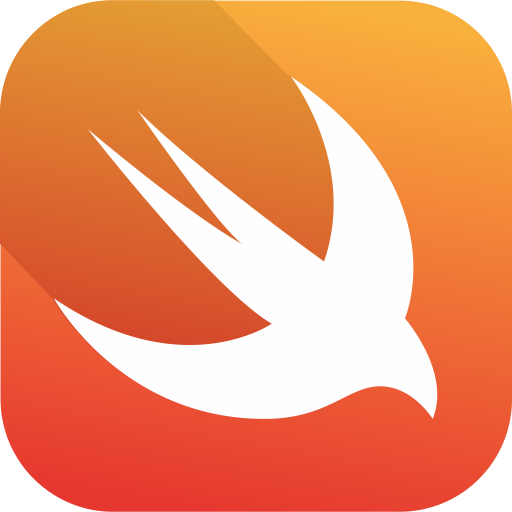
Swift is a language invented by Apple in 2014 to create Linux and MacOS applications. Although relatively young, its popularity is explained by the fact that most iOS apps are written in Swift. It’s a great language to start with if mobile development and gaming are your goals. Since iPhones have over 50% US market share, companies prioritize iOS apps. Swift's safer and more pleasant to work with than the old Objective-C it replaced.
Reasons to learn Swift:
- It’s a clean, concise, open-source programming language.
- It eliminates entire classes of unsafe code as a preventative measure.
- It was built to be incredibly user-friendly.
- It offers a knowledgeable community of users.
- It’s designed for safety, with built-in error checking.
- It’s used by some of the biggest companies in the world, including Apple, IBM, and Airbnb.
Job titles that use Swift:
- iOS developer
- macOS developer
- Mobile architect
- Swift software engineer
Salary estimate with Swift skills:
Swift developers earn an average of $124,000 per year in the US, according to ZipRecruiter.
Popularity: About 3,000+ specialized positions, but these tend to be quality jobs at consumer brands with solid budgets: think retail, media, and startups.
Difficulty: Low
Best programming languages to learn based on your career path
Your ideal path for your future programming career determines the best programming languages to learn. Below is a rundown of the best coding languages to pick up to achieve your career goals.
General purpose languages
General-purpose languages are used to build a variety of apps and websites. They are relatively easy to learn and are a good starting point for beginners.
Python, Java, and C++ are the main general-purpose languages for beginners in software development. They are the best programming languages to start with to become a programming expert. After learning these languages, it’ll be easier to branch out into more specific programming fields.
Web development languages
JavaScript, HTML, and CSS are the main languages for web development. You should focus on them to become good at website and web app development.
This one splits two ways. JavaScript is still mandatory for front-end work, as the npm ecosystem keeps expanding every year, but TypeScript has taken over for anything serious or enterprise-level. The reality is you need both; learn JavaScript first to understand how things work, then switch to TypeScript when you're building real applications.
Start with JavaScript fundamentals such as DOM manipulation and async programming. Build a few small projects like a to-do app, calculator, or weather app. Once you've got that down, learn TypeScript while working with React or Next.js. You're probably looking at three to six months for JavaScript, after which you can more easily move into TypeScript.
Mobile development languages
Kotlin, Java, and Swift are the best programming languages for mobile development. Kotlin and Java are used for Android apps, while Swift is used for iOS apps. These languages are crucial to getting a job as a mobile developer, so focus on them to excel in this field.
Data science languages
Python, SQL, R, and Java are the most useful programming languages for data science and machine learning. These languages enable developers to build functional machine learning (ML) models that solve organizational problems. You should explore these high-level languages to become a successful data science and machine learning programmer.
AI and machine learning languages
You're going to need Python, there's really no way around it. AI engineering is one of the hottest specializations right now, and companies can't find enough people to fill these roles. The reason is simple: Python has all the ML libraries such as TensorFlow, PyTorch, Keras, andscikit-learn as well as the data tools such as NumPy and Pandas.
Here's what actually works: Get solid with Python basics first, then jump straight into scikit-learn and TensorFlow. Put some ML projects on GitHub so you have something to show. Figure six to 12 months to get to a junior level where you can start applying.
Game development languages
C++, Java, JavaScript, Lua, and Python are the most popular languages for game development. In addition, building games is challenging, so in-depth knowledge of these languages can propel you into a lucrative career.
C++ is what AAA studios use for game development and to work with the Unreal Engine. But if you're an indie developer or working with Unity, C# is way more practical and easier to get into. For mobile games specifically, you'll need Swift for iOS and Kotlin for Android.
If you're just starting out, go with C# and Unity. The learning curve is gentler, and there's a huge community to help you out. Once you're comfortable, you can always learn C++ later if you want to work at a AAA studio. Mobile developers should learn both Swift and Kotlin.
Embedded systems and internet of things (IoT) languages
C++, Rust, Python, and Java are the most useful programming languages for embedded systems. Embedded apps are designed for specific complex tasks, and IoT systems are necessary for many industrial processes. If you want an interesting, challenging, and reliable career path, these are some of the best languages to learn in 2026.
Cloud and back-end infrastructure languages
Go and Rust are climbing fast for vital underlying tech. Go was built specifically for APIs, web applications, and handling multiple things at once. Rust is becoming the go-to for systems programming because it's memory-safe without needing garbage collection. Big names like AWS and Dropbox are already using it.
Go is easier to learn and gets you working faster. Rust takes more patience but sets you up better long-term. Pick Go if you want quick results, Rust if you're building something that needs to be bulletproof or incredibly fast.
Why you need to know more than one programming language
As an aspiring tech professional, you might be wondering how many programming languages you need to know. At TripleTen, we help students learn more than one language because individuals with multiple languages are paid better due to their versatile experience.
“We advise our students not to limit themselves to one language,” says Anastasia Cherepanova, TripleTen Career Product Lead.
There are numerous languages that are easy to learn. For instance, if you know JavaScript, you’ll need two weeks at most to master TypeScript. We recommend that you expand your horizons. Anastasia Cherepanova, TripleTen Career Product Lead
Once you get started with one language and begin learning more frameworks that allow you to work in different roles within a team, you’ll be pleasantly surprised at how tempted you are to progress even more!
Where to start learning a programming language
There are many ways you can learn a programming language. In a college classroom, through free online resources, or even with the help of a professional bootcamp. Each approach has its pros and cons, but we’re obviously big fans of the bootcamp route.
Why? Because our bootcamp graduates are proof that the right environment can make all the difference in launching a career in tech. In fact, 82% of our graduates get hired within 180 days. If you’re curious whether a career in tech might be right for you, take this short career quiz.
FAQ
What is the most useful language to learn in 2026?
The most useful language to learn in 2026 is Python. It shows up in 45.7% of recruiter searches, making it the most versatile option. Still, JavaScript is also reliable. JavaScript runs 66% of web development projects. Both are good, so choose based on where you're headed: Python if you want AI/ML work, JavaScript for web development.
Which coding language will be most useful in the future?
Python, TypeScript, and Go will be the most useful languages to know in the future. Python dominates AI/ML, which is exploding right now. TypeScript adoption shot up 301% recently. Go keeps gaining ground in cloud infrastructure. Learn any of these three and you're setting yourself up well.
How long does it actually take to learn a programming language to get hired?
To learn a programming language well enough to get hired, most people need six to twelve months if they're consistent. Full-time bootcamps can do it in three to nine months. Self-study while working usually takes 12–24 months. What matters most is staying at it, and bootcamps offer the external motivation that many need.
Can I get a programming job without a computer science degree?
You can absolutely get a programming job without a computer science degree. Google, Apple, and IBM have all dropped degree requirements. They care about what you can actually do and what you've built. Put together three to five good projects for your portfolio and contribute to some open-source repos. That's what gets you in the door now.
Do I need to go to a coding bootcamp, or can I learn on my own?
You can learn on your own, but bootcamps give you the edge. Bootcamps provide structure and mentorship and teach you the skills employers are actually hiring for. Teaching yourself is cheaper and more flexible, but you have no expert guidance, need discipline, and it can take longer, potentially up to two years to land a job.
What's the easiest programming language for complete beginners?
Python is the easiest programming language for complete beginners. The syntax reads almost like English, there's documentation everywhere, and you can start building tech projects quickly. JavaScript is also solid for beginners because you see results immediately in your browser, which helps you stay motivated. Both have massive communities ready to help when you get stuck, but Python is typically what we recommend.
Do I need to know multiple languages to get hired, or is one enough?
Knowing one language is typically fine to land your first job. But get truly skilled in it. Understand the fundamentals inside and out. After that, start picking up more languages. Once you're at the mid or senior level, companies start wanting two to three languages (something like Python + JavaScript + Go). But when you're starting out, go deep instead of wide.
Which programming language pays the most in 2026?
In 2026, Scala developers will make the most, with 38% of its specialists pulling in an estimated six figures or more, but it's pretty niche. Python specialists doing AI work can earn $156K–$212K+. Go developers will average around $120K. Still, your location and industry matter more than the language. AI, cloud, and blockchain companies in big cities pay well regardless of which language you use.
Which language has the best job security?
Python has the best job security. It's in 45.7% of recruiter searches, there are 64,000+ openings every month, and it's used throughout AI, web, data science, and tech in general. JavaScript and TypeScript are rock-solid for web work. Similarly, Java runs 97% of enterprise systems, so it's not going anywhere. Any of these three will keep you employed.







.webp)
.avif)
%20(1).jpg)















